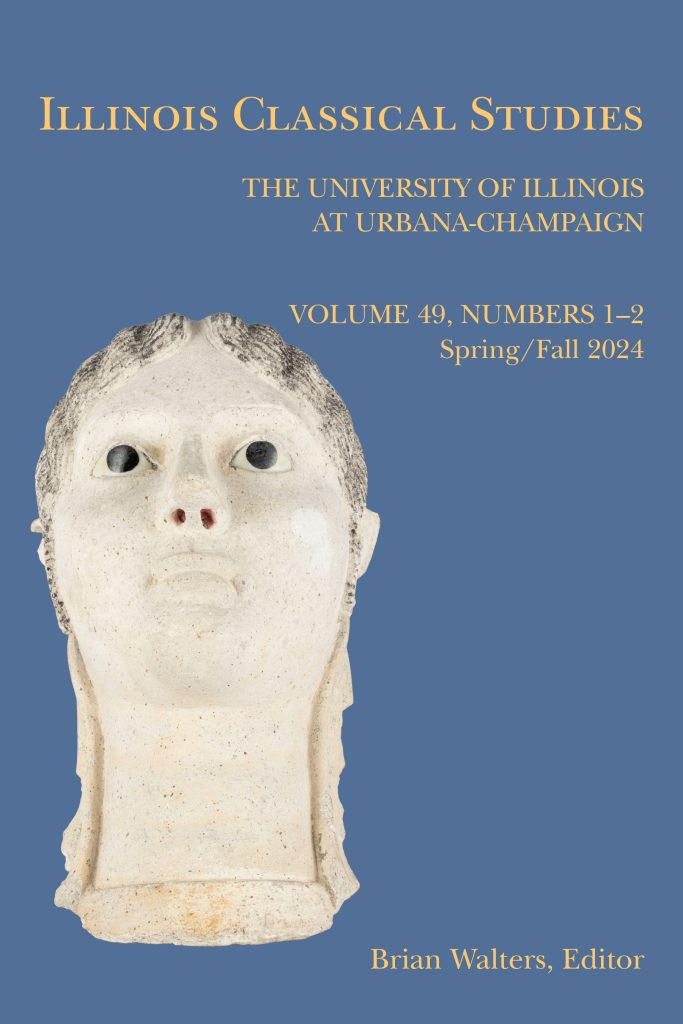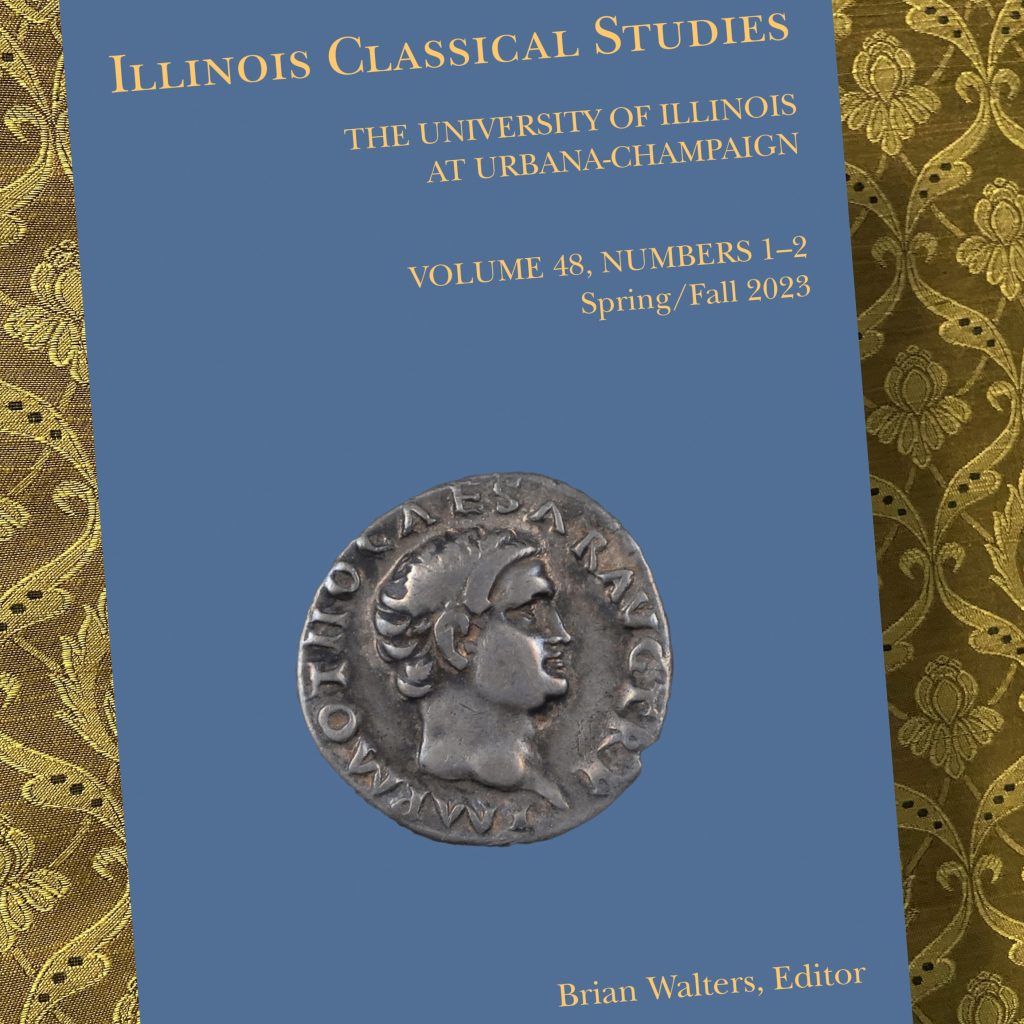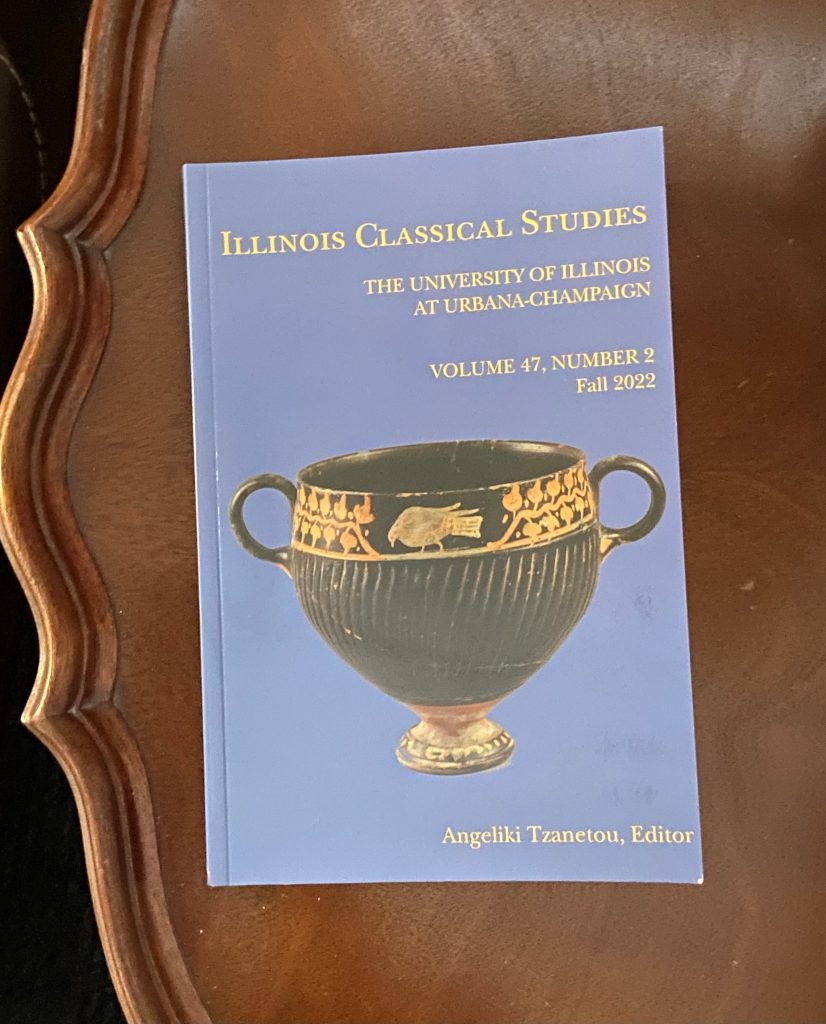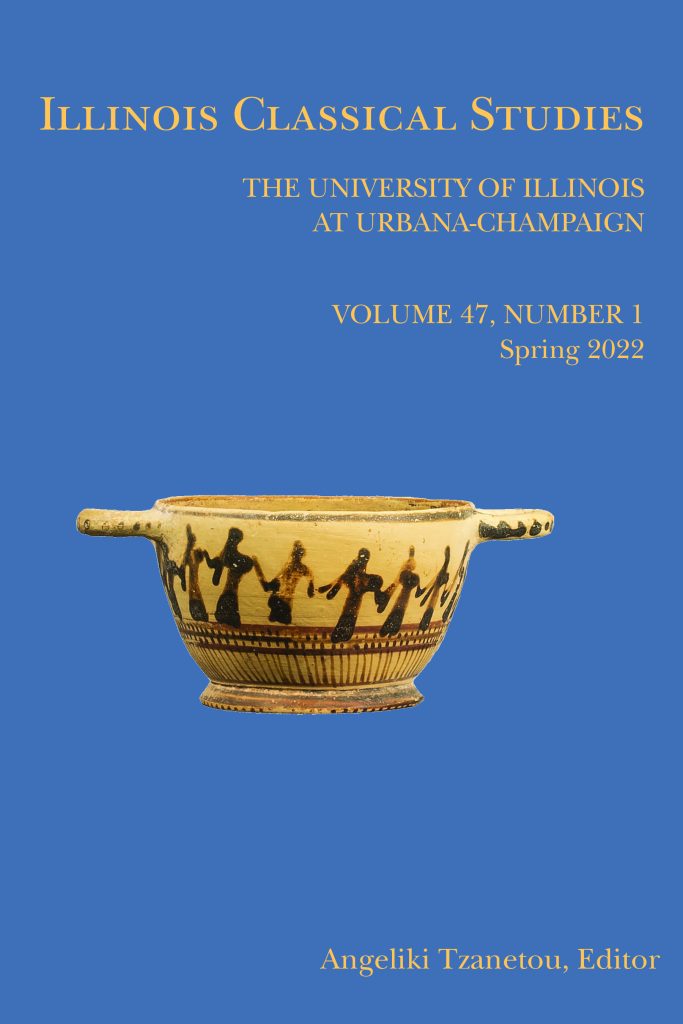Did you know that this week is National Classics Week? It’s an annual celebration of the Classics discipline that culminates in the anniversary of the founding of Rome over 2,700 years ago on April 21st. In honor of the week, we wanted to highlight some articles from our journal, Illinois Classical Studies (ICS).
Before diving into the articles, be sure to check out Illinois Classical Studies’ new poetry section, which debuted in Volume 49, Issue 1-2! The journal is now publishing poetry and translation. Check out two poems (“Arachne” and “Toward Crete”) by Jason Mitchell and a translation of Seneca’s Thyestes, Act One by Brian Walters.
Recommended Articles

“The ‘Pathetic Fallacy’ and Related Figures in Classical Bucolic Poetry: Between Ancient Culture, Ecocriticism, and Science” by Alessandro Ralim de Moura (Vol. 49, Iss. 1-2)
This paper addresses the use of the term “pathetic fallacy” by critics to describe the representation of nature in bucolic poetry. Especial attention is given to the problematic usage of the term to describe how poets see the behavior of animals. The essay proposes an alternative approach to the relevant passages employing Greg Garrard’s typology of representations of animals, as well as references to scientific research on animal cognition and emotions.
“Heralding a ‘Proem in the Middle’? The Pisonian Conspiracy of Tacitus and the End of Nero” by Rhiannon Ash (Vol. 48, Iss. 1-2)
The first part of this article explores ways in which Tacitus’s account of the Pisonian conspiracy functions within the narrative arc leading up to Nero’s suicide in 68 C.E. and why Tacitus’s account of the failed plot deserves to be taken seriously. In part two, the article considers Tacitus’s historiographical strategy in positioning his account of the Pisonian conspiracy.


“Being and Becoming Good in Plato’s Protagoras” by Brian Reese (Vol. 47, Iss. 2)
At the heart of Plato’s Protagoras is a lengthy interlude in which Socrates is compelled to offer an interpretation of a poem by Simonides. Protagoras challenges Socrates to explain away an alleged inconsistency: Simonides claims that it is hard for someone to become good but then criticizes another poet for seemingly saying the same. In responding, Socrates offers a protracted exegesis of the poem. While this so-called “poetic interlude” has long attracted the attention of commentators, Reese uncovers new and important ways in which it is connected to broader Platonic arguments and themes.
“Dis/ableism in the ‘Problem of Claudius’: The Reception of Claudius’s Disabilities in the Ancient Sources” by Daniel J. Kershaw (Vol. 47, Iss. 1)
By utilizing methodological frameworks and techniques employed in Disability Studies and Disability History, this article aims to attenuate the historiographical “problem of Claudius.” Scholarship is currently at an impasse in reconciling the ‘Suetonian/Senatorial’ depiction of Claudius “the fool” and Claudius the progressive legislator, builder, and administrator that modern revisionism has discerned. By analyzing the disability bias that exists in the ancient literary material, this discussion demonstrates that ancient representations of Claudius are significantly distorted by ableist assumptions and disablist prejudice.

Find Out More:
Edited by Brian Walters, Illinois Classical Studies (ICS) was founded in 1976 by Miroslav Marcovich, Head of the Department of the Classics at the University of Illinois. Subsequent editors included Professors J. K. Newman, David Sansone, Gerald M. Browne, Danuta Shanzer, Antony Augoustakis, and most recently Angeliki Tzanetou. ICS publishes original research on a variety of topics related to the Classics, in all areas of Classical philology and its ancillary disciplines, such as Greek and Latin literature, history, archaeology, epigraphy, papyrology, patristics, the history of Classical scholarship, the reception of Classics in the Middle Ages, the Renaissance, and beyond. ICS also publishes thematic volumes, as shown in the special issues mentioned above.
- Listen to our podcast with former editor Dr. Angeliki Tzanetou, Dr. Isabel Ruffell, & Dr. Natalia Tsoumpra.
- Individual subscriptions can be made through the University of Illinois Press website.
- To recommend this title to your library, fill out this Library Request Form.
- Ready to see your work featured in Illinois Classical Studies? Submit original scholarly work here.
